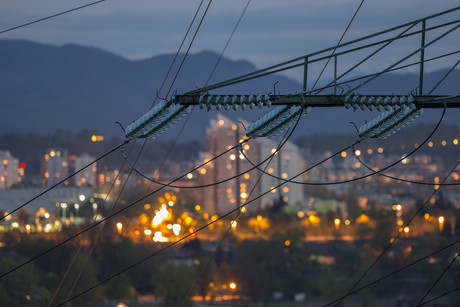Are utility businesses cannibalising themselves?

Utilities retail executives are asking themselves, “How do we become a trusted brand and reinvent ourselves before we are packaged into some other domain’s ‘bundle’?”
Since South Australia’s blackouts, we have been bombarded with energy security and affordability news. Other than renewables which made a remarkable PR recovery via Elon Musk’s giant battery, energy retailers have worn the brunt of the negative sentiment. As the (perceived) cause of record high energy costs, popular judgement of retailers has been harsh, now seemingly vindicated by our Prime Minister’s push to dismantle the traditional discounting model.
This groundswell of coverage has been preceded by years of declining retail margins, increased network charges and changing regulatory obligations driving seemingly unnecessary capital investment. It’s clear that the traditional cost-plus model of energy retailing is quickly becoming unsustainable. Couple these commercial and regulatory factors with continued high churn and consistent negative net promoter scores, and you have a sector facing continued atrophy and worse, rapid disruption.
Most utility retailers, including those in non-contestable markets such as water, have realised the need to offer ‘non-fuel’ or ‘next-generation’ products and services. The challenge for traditional utilities in shifting focus to these lines of business is the posture that every investment must have a clear business case. The start-up/agile/adaptive conversations that proliferate across so many utilities generally hold little clout when requesting funds from corporate business units.
The clear advantage the disruptors and start-ups to the market have is the lack of legacy brand issues and engrained corporate hurdles designed to minimise risk. Their innovative product and service concepts can start and stop without costly technology and business change overheads allowing rapid innovation until a profitable idea ‘sticks’. To match this agility, traditional utilities need to become truly transparent and leverage their large customer bases with ‘stickier’ complementary products and services. This shift poses tough questions: Are we cannibalising our own revenue?; Will people suddenly understand what we’ve been doing to them?; What if it doesn’t work? Unfortunately, the alternative to not making a change is clear — top 100 organisations will become insignificant, only to be replaced by more customer-centric aggregators of products, services, customers and, most importantly, loyalty.
Taking action on sustainable cooling
Demand for cooling is set to triple by 2050, due to population increases, more extreme-heat...
New digital twin will plan the energy systems of the future
A Netherlands-based project has received a massive €16.5m grant to simulate and study the...
Dynamic software for a global BESS developer
Australia's Akaysha Energy enlisted the services of Gurobi Optimization to help fine-tune its...



